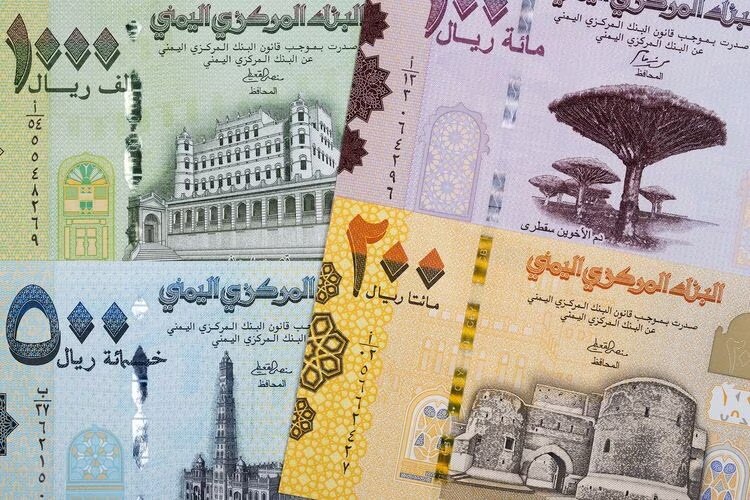Yemen Travel Tips and Information
Official Name
Republic of Yemen
Capital
Sana’a
Population
Country Code
Approximately 34.45 million people
YE
Country Code (international calls)
+967
The flight time to Yemen is approximately ---- hours. Check the climate, currency, religion, manners, other information of Yemen below. Wishing you pleasant travels to Yemen.
Facing the Red Sea and the Indian Ocean, it is located at the southwestern tip of the Arabian Peninsula and borders Oman and Saudi Arabia.
Local Climate / Weather
Yemen has a diverse climate, varying significantly between coastal, mountainous, and desert regions. Generally, the country experiences a hot, arid climate, particularly in low-lying areas like Aden. Temperatures can reach over 40°C (104°F) during peak summer months. The mountainous areas, such as Sana’a, enjoy a more moderate climate, with cooler temperatures, especially at higher elevations. Rainfall is generally scarce but occurs mainly in two brief rainy seasons, from March to May and July to September.
Currency & Tipping
Currency
The official currency of Yemen is the Yemeni Rial (YER). Rial notes come in denominations of 50, 100, 200, 250, 500, 1,000, and higher, with coins used less frequently. Due to fluctuations in the currency's value, the U.S. dollar may be accepted in some areas, but it’s best to carry Yemeni Rials for local transactions. Currency exchange is available at local banks and licensed exchange bureaus. It’s advisable to exchange money upon arrival, as ATMs may be scarce and credit cards are not widely accepted, especially in rural areas. Major cities like Sana’a and Aden are more likely to have exchange services. Travelers should avoid black-market currency exchanges to ensure fair rates and safe transactions.
Tipping
While tipping is not mandatory, it is a common practice and appreciated for services. Here are general guidelines: ・Restaurants and Cafes: A 5-10% tip is customary in mid-range and upscale restaurants. In smaller, casual eateries, tipping is less common but still appreciated. ・Hotels: Tip hotel staff, such as porters or room service attendants, with a few rials as a gesture of thanks. ・Guides and Drivers: For tour guides and drivers, a tip of around 10-15% of the service cost is customary, especially if they provided exceptional service.
Useful Travel Information

Voltage & Electrical Outlets
Yemen operates on a 220V supply voltage with a frequency of 50 Hz, and the common plug types are Type A, D, and G. Travelers should bring a universal adapter and consider a voltage converter if their devices are not compatible with 220V. Check your electronics to ensure they support this voltage to avoid damage.

Internet Connectivity
Internet access in Yemen can be limited, especially outside major cities. Larger cities like Sana’a and Aden typically have more reliable internet in hotels and some cafes, though connection speeds may vary. Mobile data is available through local SIM cards from Yemeni providers; however, coverage and speeds may be inconsistent. Travelers should expect limited connectivity in rural areas and consider downloading maps or important information in advance.
Water for Consumption (Drinking Water)
Tap water in Yemen is generally not safe for drinking, and it's advised to use bottled or purified water for drinking and brushing teeth. Bottled water is widely available in urban areas. In rural areas, make sure to carry sufficient bottled water or a portable purification solution to ensure safety. When dining out, opt for sealed bottled beverages and avoid ice in drinks.
Culture, Religion & Social Etiquette
Culture
The country has an ancient history that spans the history of the Kingdom of Sheba, which dates back to around 1000 BC. Most of the people are Muslim, so the Islamic way of life is conspicuous. Nomads called Bedouins still live in the desert. Adult men carry daggers called jambiyas, and women cover their hair and bodies with scarves and cloths due to religious custom. Love marriages are not allowed in Yemen, and parents generally decide who to marry. Only about 10-20% of the population marry for love.
Religion
Almost 100% of the population is Muslim. About 300 Yemenis are also Jewish.
Social Etiquette
Yemeni dress code is to wear long sleeves and long pants for both men and women, and to refrain from exposing too much skin. Women, in particular, are advised to avoid revealing their hair as much as possible, as well as wearing clothes that show off their body lines. Drinking alcohol and eating pork are also prohibited.
Food Culture
Yemeni cuisine offers a flavorful and aromatic experience, rich in spices and traditional cooking methods that travelers will find both familiar and intriguing. Dishes often feature ingredients like lamb, chicken, rice, vegetables, and fragrant spices, with saltah (a hearty stew) and fattah (a bread-based dish) among the local favorites. Street food is popular, especially in bustling cities, where travelers can enjoy quick bites like sambusas (similar to samosas) and mutabbaq (a stuffed pastry) from food stalls. Coffee, originating from Yemen, is also a must-try, with many locals enjoying it strong and aromatic. For an authentic taste of Yemeni flavors, head to recommended spots like Al Shaibani Restaurant in Sana’a or Bait Bawab in Aden, where traditional dishes are served in a welcoming setting. Exploring Yemen’s food culture offers a delicious journey through local traditions and flavors.
Major Tourist Attractions & UNESCO World Heritage Sites
Major Tourist Attractions
Yemen is home to breathtaking destinations that travelers will find enchanting and culturally enriching. The capital, Sana’a, is famous for its historic old town, featuring intricately decorated mud-brick buildings and vibrant souks. Adventure seekers can visit Socotra Island, a UNESCO-listed paradise known for its unique biodiversity, including the iconic dragon blood trees and pristine beaches. The ancient city of Shibam, often called the "Manhattan of the Desert," offers a fascinating glimpse into early high-rise architecture. Exploring these destinations provides an immersive experience into Yemen's history, natural beauty, and cultural heritage.
UNESCO World Heritage Sites
Yemen boasts several UNESCO World Heritage Sites that highlight its rich history and architectural marvels. Old Sana’a captivates visitors with its centuries-old tower houses, traditional markets, and mosques. The Historic Town of Zabid, a former Islamic educational hub, showcases exquisite architecture and narrow alleyways perfect for exploration. The Old Walled City of Shibam, with its striking mud-brick skyscrapers, offers a glimpse into medieval urban planning. Travelers can also marvel at the biodiversity of Socotra Island, ideal for eco-tourism activities such as hiking, snorkeling, and wildlife observation. These sites reflect Yemen's profound cultural and natural significance.
Travel FAQs
What is the safety situation in Yemen like? What should I be careful of?
Traveling to Yemen presents significant safety challenges due to ongoing conflicts, terrorism, and civil unrest.




